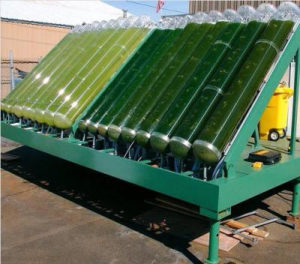Is algae losing its green bubbling allure? Shell seems to think so as it sold its stake in algae biofuel developer Cellana to its joint venture partner HR BioPetroleum (HRBP).
Cellana was formed by Shell and HRBP in 2007 to build and operate a demonstration facility to grow and produce oil from algae for biofuel application. The company’s demonstration facilities are said to be the most advanced among algae-to-biofuel companies in the US.
Other oil companies currently in the algae game include ExxonMobil with its collaboration with Synthetic Genomics; BP with its collaboration with Martek Biosciences (being acquired by DSM); Chevron with its collaboration with the National Renewable Energy Laboratory; and Valero with its collaboration with Algenol.
[ad]
According to Pike Research, algae biofuels production could reach 61m gal/year over the next decade with a market value of $1.3bn, representing a growth rate of 72% on par with the early development in the biodiesel industry.
That is if developers could soon produce commercial proof that it can be done economically.
“On paper, algae could displace worldwide petroleum use altogether, however, the industry has yet to produce a drop of oil for commercial production,” says Pike Research president Clint Wheelock. “Although the algae-based biofuels market will grow rapidly once key cost hurdles are overcome, widespread scale-up will be hampered by a number of difficult challenges including access to nutrients, water, and private capital.”
Wheelock adds that with the cost of production still a key obstacle to widespread production, many companies are refocusing production efforts on low-volume, high-value co-products to develop revenue streams over the next decade.
Around 50% of all algae activity is in the United States with pilot- and demonstration-scale facilities beginning to break ground across the country, according to the consultancy. The European Union (EU) market, which is home to about 30% of algae activity, will reportedly be limited initially by the industry’s focus on university research, and later by insufficient access to water, land, and nutrient sources.


